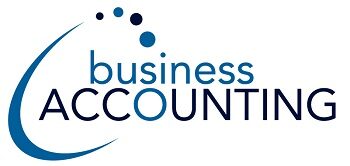Introduction
You will see everything you need to negotiate with the bank to be profitable and have peace of mind. We will also see a lot of the language of the banker to bluff him during your meeting.
To be negotiated with the bank
There are several key things to negotiate with the bank so that you can have better profitability and peace of mind.
Credit deferral
This is something I always ask for, credit report . Without going into details, the credit report allows you to pay part or not at all of your credit for several months or years. We often ask that when there is work in the property , it allows you to do the work quietly without having to pay the credit. In general, a credit report goes from 6 months to 36 months maximum , your request for duration must be consistent with the work that has to be done. For my current investment, I asked for a 12 month deferment, I knew the work was going to last 8-10 months, so that was enough.
Note that there is partial credit deferral , where you will only pay the interest, but not the capital. There is also full credit carryover where you will pay nothing at all. This technique makes it possible not to take money out during the work, but it also makes it possible to put cash aside. Indeed, if your work lasts 6 months and you have a 12-month postponement, you will be able to put 6 months’ rent aside. This option is therefore important to put in place, especially when you are new to real estate and do not have a lot of means.
Be careful not to abuse it either, because the goal is still ultimately to repay your loan so that the property belongs to you, and if you take 24 months each time, the end date of your credit will be postponed.
Prepayment interest (IRA)
IRAs should also be part of your negotiation. IRAs are the fees you have to pay if you pay off your loan early . Indeed, the earlier you repay your loan, the less money the bank will earn, since there will be less interest to pay than if you had stayed for 20 years, for example. This is why the bank charges IRAs in such cases. As you will have understood, the goal is therefore to negotiate so as not to pay any IRA in the event of early repayment .
I’m not a fan of repaying my credit quickly, I prefer to keep this money to make a new contribution to a new property rather than using it to settle a loan. Afterwards, everyone does as they want according to their personal situation. Unless otherwise specified, IRAs are calculated as follows, 3% of the capital remaining due OR 6 months of interest on the amount repaid, the lower of the 2 will be chosen.
Application fee
Very often, there are application fees when you make a loan in a bank , in general it is around 500 to 2000€. The goal being to negotiate in order not to pay them, it is always that less to pay. After, to choose between everything to negotiate, the administrative fees are the least important of all, so you can skip its negotiation if you see that it is tense.
The duration of the rate
The longer the duration and the lower the monthly payments, the shorter the duration and the higher the monthly payments. But, the longer the term, the higher the interest will also be, so you have to do the pros and cons. If you want maximum cash flow, the most important thing is to have the longest possible term, to have low monthly payments.
The duration of a loan most often chosen by investors is 20 years , it is the ideal duration allowing to have fairly low overall interests while having cash flow, it is moreover this duration that I also take. But we see more and more often banks making 25, 30 or even 35 years for rental investment. It’s up to you to do your calculations to see if you prefer to pay maximum interest on the global and have a large cash flow or have less interest with a lower cash flow.
The language of the banker
We will see here in detail all the concepts you need to know to speak the language of the banker .
Surely you’ve seen posts on Facebook and more generally on the internet that say they got 110% funded, but what does that mean exactly? Basically, it just means getting all the money you need for your investment loaned from the bank . Let’s take the example of a property at 100K€, with approximately 7K€ in notary fees, 1K€ in bank file fees, 2k€ in mortgage, 20K€ in works. You therefore have an overall investment of €130,000. Borrowing at 110% would mean in our case that you would borrow the entire €130K from the bank.
In the end you don’t borrow 110%, it’s just an expression, now you will know what it means. You should know that at the beginning for the 1st, 2nd and perhaps 3rd investment, the 110% passes quite easily with the banks, especially for not very high projects. On the other hand, when you start to have several buildings and a heritage of around 600-700K, the 110% will no longer pass. In these cases, it will be necessary to make contributions, in some cases it will be just the notary fees, in other cases, it could be 20% contribution.
I find that the 110% loan is a very good solution , and the more you can use it, the more I advise you to do it.
Deposit or mortgage
As I told you in the previous module, the bank wants to take as little risk as possible, and for that, it wants to be sure of being reimbursed. To be sure of being paid, it protects itself against the failures of the borrower by taking out a guarantee, so if the borrower no longer manages to repay his mentalities, the bank is still saved. This guarantee is mandatory, the bank will not lend if it does not have this security.
There are several types of guarantees, but we will talk about the 2 main ones which occupy more than 95% of guarantees in France:
The guarantee, which represents 2 thirds of the credits.
Surety bonds represent a large majority of loans, because banks prefer this type of guarantee. The reason is simple, in the event of a problem with the borrower, the bank delegates absolutely the entire party to recover the debt to the surety body. Generally each bank has its surety subsidiary (Camca at Crédit Agricole for example), if it does not have a subsidiary, it will go through housing credit, which is an organization owned by all the major French banks.


